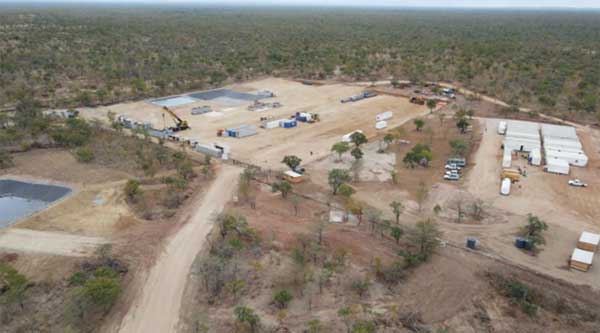
BY SHAME MAKOSHORI AUSTRALIA-headquartered oil and gas outfit, Invictus Energy announced fresh discoveries at its Zimbabwe-based Mukuyu gasfields on Monday, as it laid out plans to blast its first test well from next month.
The fresh discovery marks a dramatic shift in the Australia Stock Exchange (ASX)-listed outfit’s Zimbabwe strategy.
Only 12 months ago markets were left wondering if Mukuyu, formerly Muzarabani, was worth pursuing after an Invictus executive sounded downbeat in a recent update.
However, in a filing to ASX covering the quarter ended June 30, 2022, Invictus said the Mukuyu asset could be containing 2,7-fold more gas than previous exploration data had indicated.
“Mukuyu prospective resource (has been) upgraded to 20 Tcf (Trillion cubic feet) + 845 million barrels of conventional gas condensate,” the firm said.
“During the quarter, Invictus received an updated independent report from ERCE estimating substantial resource potential at its Cabora Bassa Project, as announced in the ASX release on July 5 2022. ERCE estimates the gross mean recoverable conventional potential of the Mukuyu prospect at a combined 20 Tcf and 845 million barrels of conventional gas condensate, or approximately 4,3 billion barrels of oil equivalent (boe) on a gross mean unrisked basis. This marks a 2,7-fold increase on a barrel of oil equivalent basis to the 2019 independent assessment by Getech Group plc, which estimated Mukuyu (then named Mzarabani) to hold 8,2 Tcf and 247 million barrels (~1,6 billion boe) of conventional gas condensate, on a gross mean unrisked basis,” Invctus added.
“The estimated quantities of petroleum that may be potentially recovered by the application of a future development project relate to undiscovered accumulations. These estimates have both an associated risk of discovery and a risk of development. Further exploration, appraisal and evaluation are required to determine the existence of a significant quantity of potentially movable hydrocarbons,” said Invctus.
In an address to the Chamber of Mines of Zimbabwe annual general meeting in Victoria Falls last year, Bent Barber, the technical director at Invictus requested government to expand its 100 000-hectare 10-fold, bringing it to one million.
- Chamisa under fire over US$120K donation
- Mavhunga puts DeMbare into Chibuku quarterfinals
- Pension funds bet on Cabora Bassa oilfields
- Councils defy govt fire tender directive
Keep Reading
“Zimbabwe needs to expand the oil and gas exploration block,” Barber told delegates.
“The size is not competitive with other neighbouring countries. The money is becoming harder and harder to find. The size of grants is important. We have applied for an increase of our concession for exploration. Our current space is drastically reducing the commercial component of it. At the moment, we have not made any discovery.”
- Follow us on Twitter @NewsDayZimbabwe











